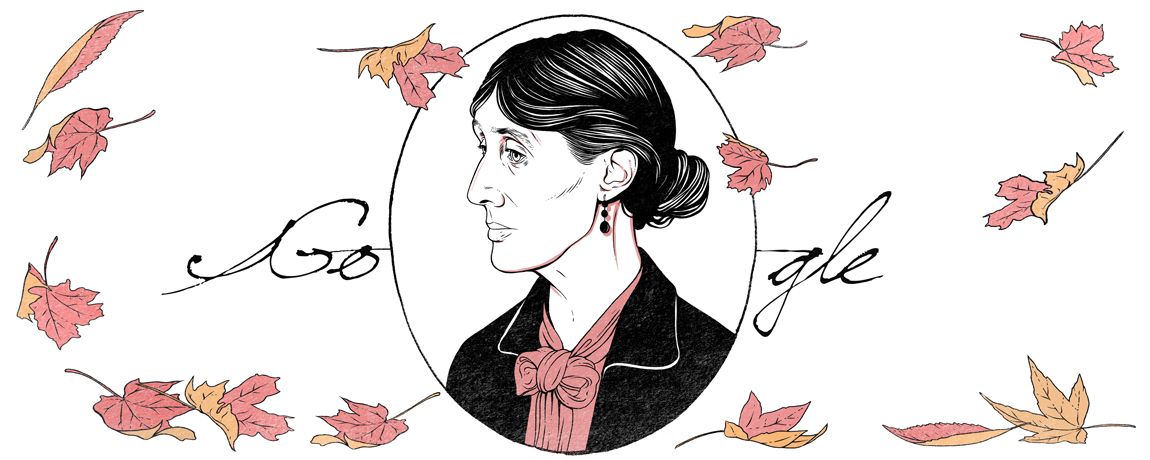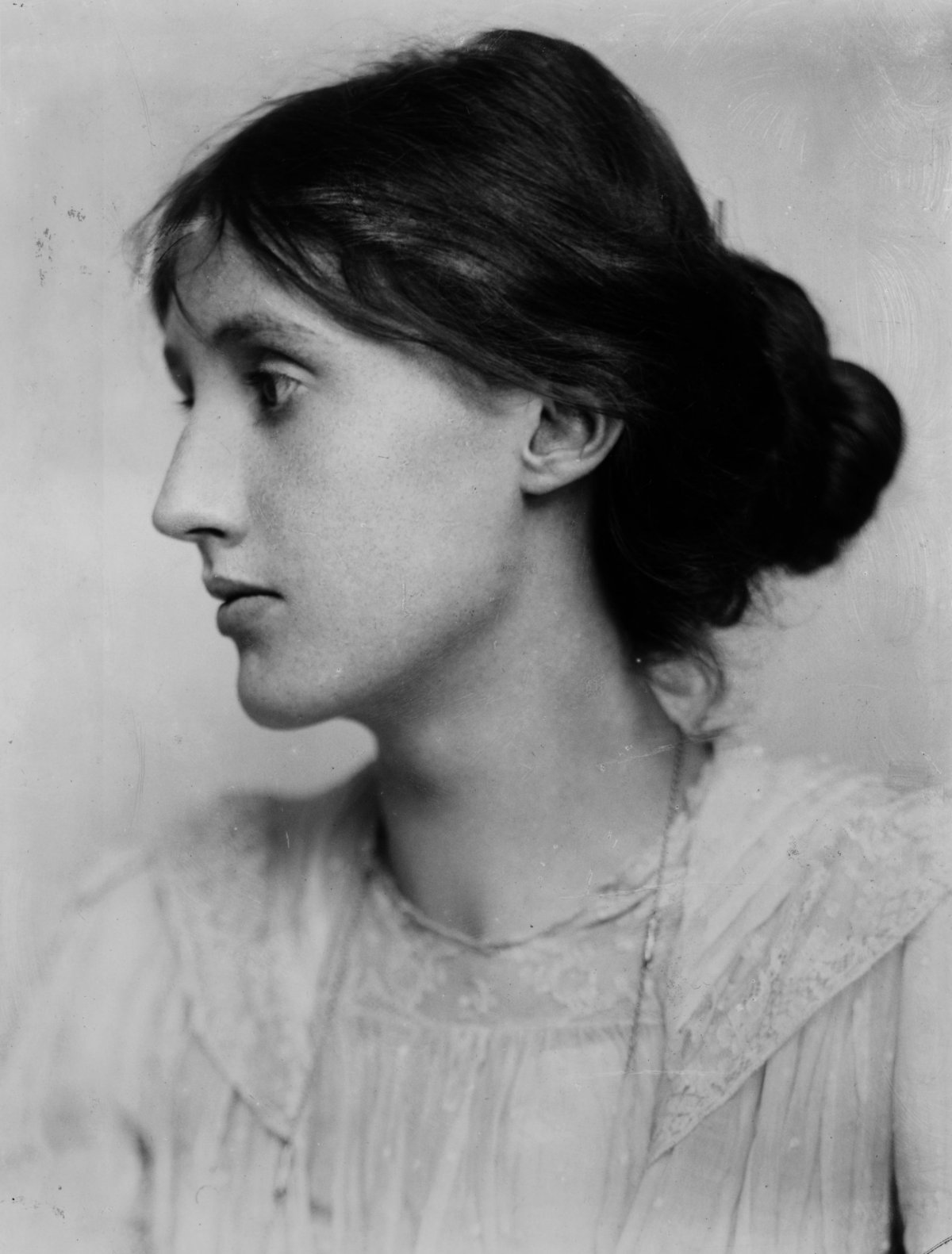
Virginia Woolf would have turned 136 on Thursday, and Google is marking the occasion with a special "doodle" illustration in her honor.
Visitors to the search giant's homepage will find a portrait of the author, born in 1882, who is known for books including Mrs. Dalloway (1925), To the Lighthouse (1927), A Room of One's Own (1929) and The Waves (1931). The sketch shows Woolf in profile, lost in thought, her dark hair tucked into a knot at the nape of her neck, as she always wore it.
In its description of the doodle, Google calls the author "one of modern feminism's most influential voices.… Woolf's lyrical writing thrived on the introspection of her characters, revealing the complex emotions underlying seemingly mundane events." Her nonfiction writing, it went on, highlights her "unflinching feminist perspective by documenting the gendered intellectual stratification and resulting male-dominated power dynamics of the period."
The Google doodle has become a staple of the search engine, with the company's logo shifting and transforming frequently to mark holidays, historical figures, elections, inventions, sports events and more. The harbinger of the doodle came nearly two decades ago, when Google founders Larry Page and Sergey Brin were headed to the Burning Man festival. On August 30, 1998, the Burning Man stick-figure logo appeared behind the second "o" in "Google" as an "out of office message" of sorts. It wasn't long before Google named Dennis Hwang its first "chief doodler" to create more logo transformations. There's now a whole team of doodlers, i.e., illustrators, and engineers who have created more than 2,000 doodles for Googlers in the U.S. and all over the world.
In the doodle dedicated to Woolf, the second "o" in "Google" is enlarged to become an oval frame for her portrait; the rest of the letters appear in a cursive that resembles an old style of penmanship. The author is surrounded by falling autumn leaves that seem to be in motion around her, an homage to one of the frequent themes in her work—as in this passage from To the Lighthouse (1927): "The autumn trees gleam in the yellow moonlight, in the light of harvest moons, the light which mellows the energy of labor, and smooths the stubble, and brings the wave lapping blue to the shore."

Woolf struggled with depression throughout her life, which she ended in 1941. Soon after the outbreak of World War II and the destruction of the home where she lived with her husband, the publisher and writer Leonard Woolf, she filled her coat pocket with stones and walked into the River Ouse.
"I feel certain I am going mad again. I feel we can't go through another of those terrible times," she wrote in a final letter to Leonard (they had no children). "I don't think two people could have been happier till this terrible disease came. I can't fight any longer."
Woolf's influence, however, outlived her own career. Google's nod to what would have been her 136th birthday is proof of that.
Uncommon Knowledge
Newsweek is committed to challenging conventional wisdom and finding connections in the search for common ground.
Newsweek is committed to challenging conventional wisdom and finding connections in the search for common ground.
About the writer
Stav is a general assignment staff writer for Newsweek. She received the Newswomen's Club of New York's 2016 Martha Coman Front ... Read more
To read how Newsweek uses AI as a newsroom tool, Click here.






